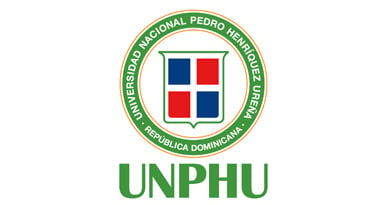| dc.contributor.author | Berrido, Ofelia | |
| dc.date.accessioned | 2019-04-22T23:24:23Z | |
| dc.date.available | 2019-04-22T23:24:23Z | |
| dc.date.issued | 2017 | |
| dc.identifier.citation | Berrido, O. (2017). La complejidad en la educación del siglo XXI. Aula Revista de Humanidades y Ciencias Sociales, 61(1), 73-82. https://doi.org/10.33413/aulahcs.2017.0i0.79 | es_ES |
| dc.identifier.issn | 0254-7597 | |
| dc.identifier.uri | https://repositorio.unphu.edu.do/handle/123456789/774 | |
| dc.description.abstract | Se reflexiona sobre el impacto del paradigma de la complejidad en el mundo de la educación del siglo XXI busca demostrar el cómo la educación, para ser efectiva y eficiente, debe contemplar las acciones que ejecutará sobre las variables críticas que impactan el sistema educacional. Se abordan los siguientes puntos críticos: el gobierno como líder del sistema y como ente definitorio de las necesidades nacionales; las universidades como responsables de la implementación certera de la función social de formar a los ciudadanos y de ofertar una educación con un estilo propio dentro de la autonomía que el sistema del país permite en busca de una educación libre, no dictatorial; los profesores como parte vital del sistema por ser guías o facilitadores que dirigen el proceso en el lugar donde se hace efectivo el sistema completo, en las aulas tanto presenciales como virtuales; y finalmente, los estudiantes, alfa y omega para quien se inicia y termina el proceso en busca de profesionales que hagan de la nación un lugar productivo en el que se vive una relación basada en valores éticos. Se reflexiona sobre el marco de referencia en investigaciones previas sobre el tema y culturas milenarias que aún se expresan soterradamente en el accionar del ser humano de este siglo. | es_ES |
| dc.description.abstract | This essay reflects on the impact of the paradigm of complexity in the world of the XXI century’s education to
demonstrate how education, to be effective and efficient, must contemplate the actions that it will execute on the
critical variables that impact its system. The paper has touched the following critical points: Government as the leader
of the system and as a defining entity of national needs; universities as responsible for the accurate implementation of the social function of educating citizens, as well as, for offering an education with its own style, within the autonomy
that the country system allows, as representatives of particular visions in search of a free, non dictatorial education;
teachers as a vital part of the system because they are the guides or facilitators who direct the process where the complete system is implemented, in both classrooms and virtual classes. And finally, the students, for whom the process exist in search of professionals who make of the nation a productive place to live and work based on ethical values. Our reflections uses as a framework of references previous researches on the subject and the wisdom of millennial cultures that still in the present century expresses in the hearts and actions of today mankind. | |
| dc.language.iso | es | es_ES |
| dc.publisher | Universidad Nacional Pedro Henríquez Ureña | es_ES |
| dc.relation.ispartofseries | Jul.-dic.;Vol.61, Número 1 | |
| dc.rights | Attribution-NonCommercial-NoDerivatives 4.0 Internacional | * |
| dc.rights.uri | http://creativecommons.org/licenses/by-nc-nd/4.0/ | * |
| dc.subject | Educación superior | es_ES |
| dc.subject | Competencia profesional | es_ES |
| dc.subject | Enseñanza asistida por ordenador | es_ES |
| dc.subject | Aprendizaje en línea | es_ES |
| dc.title | La complejidad en la educación del siglo XXI | es_ES |
| dc.type | Article | es_ES |



